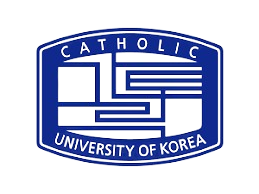
Catholic University of Korea
Green Education Ranking
#808
About Catholic University of Korea
The Catholic University of Korea is a private Roman Catholic institution of higher education in South Korea. It was established in 1855 and today operates campuses in Seoul and in neighboring Bucheon City. This was the first modern higher education institution in Korea, and has long cultivated human resources for society and the church, steadily applying and actualizing its educational philosophy, "Respect for Human Dignity in Education." The Catholic University of Korea offers bachelor's, master's, and doctoral degrees across a wide variety of academic fields in 43 departments and 42 graduate schools. The university is particularly well known for its medical school, considered one of the most prestigious in South Korea, with eight affiliated hospitals in major cities throughout the country. In addition, CUK is considered a leader in the 4th Industrial Revolution, carrying out significant national projects, and developing four new academic departments to lead industrial innovation: Artificial Intelligence, Data Science, Medical and Biological Science, and Biomedical-Chemical Engineering. The university is consistently ranked domestically as one of the premier universities in South Korea.
About World Green University Ranking
World
Green University Ranking 2024 is a
scholarly acknowledgment of educational
institutions standing at the forefront of
Education for Sustainable Development (ESD) and
leading the Green Education Transformation
(Education 6.0).
World Green University Ranking classifies
universities based on the six pillars of the
Holistic Green Education Framework, including
leadership governance, curriculum, innovation,
facilities, human capital, and community
partnerships.
The methodology employed in our Green Education Ranking is designed relying on the six pillars of the Holistic Green Education Framework. Each pillar contributes to the institution’s overall score, with a carefully assigned weight reflecting its significance in fostering sustainability. The total weight of the six pillars collectively amounts to 100%, signifying a balanced evaluation across critical dimensions of Green Education. Within each pillar, various standards are carefully assessed, with weights ranging between 1 and 2, emphasizing the varying importance of each criterion. This nuanced approach ensures a holistic evaluation and offers an insightful measure of universities commitment to Green Education Transformation (Education 6.0).
| # | Six Pillars of Green Education Framework (6Gs). | Weight |
|---|---|---|
| 1 | Green Educational Leadership | 14% |
| 2 | Green Curriculum | 17% |
| 3 | Green Innovation and Research | 19% |
| 4 | Green Facilities | 15% |
| 5 | Green Human Capital | 19% |
| 6 | Green Communities | 16% |
| Total | 100% |

